
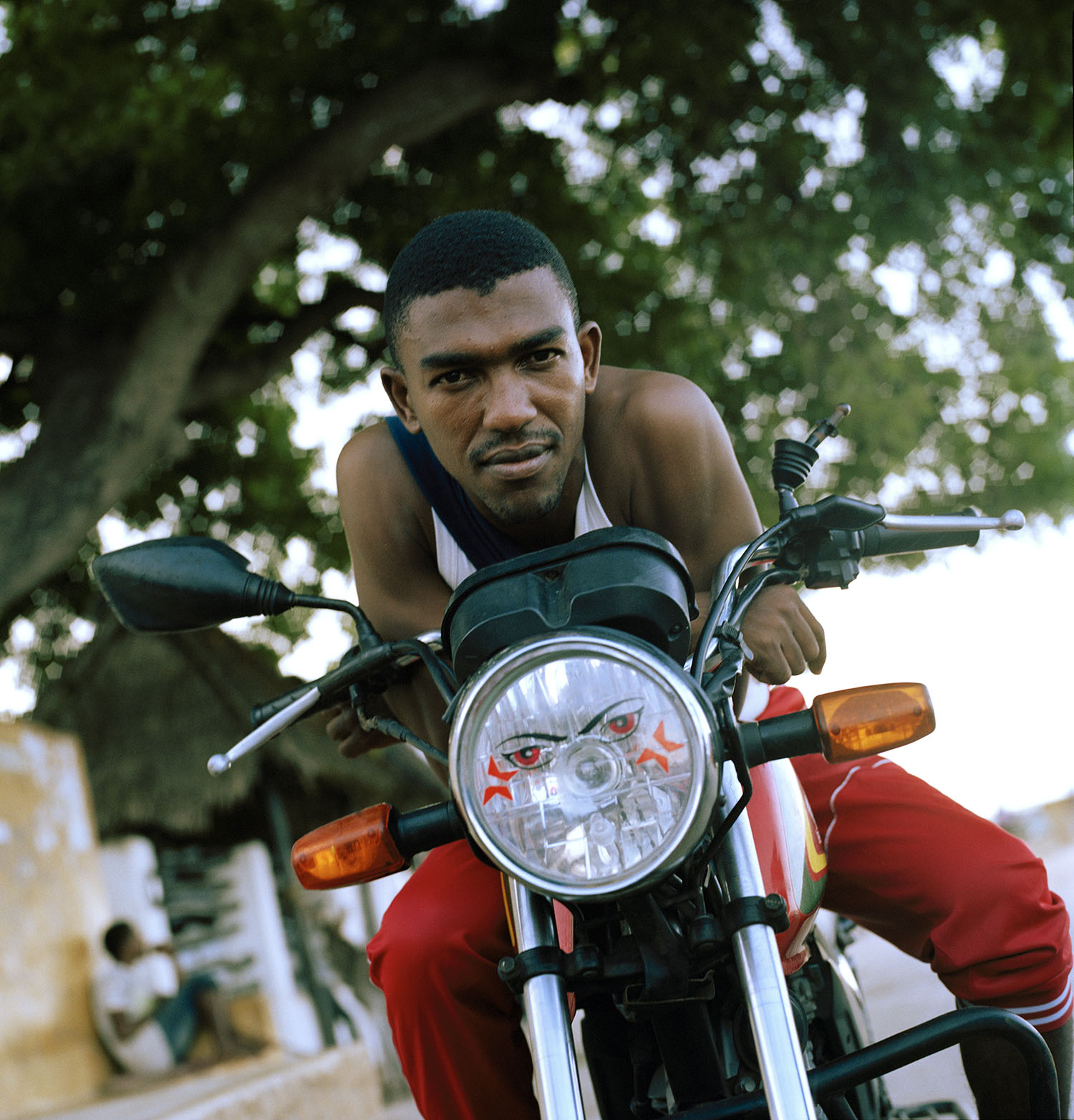
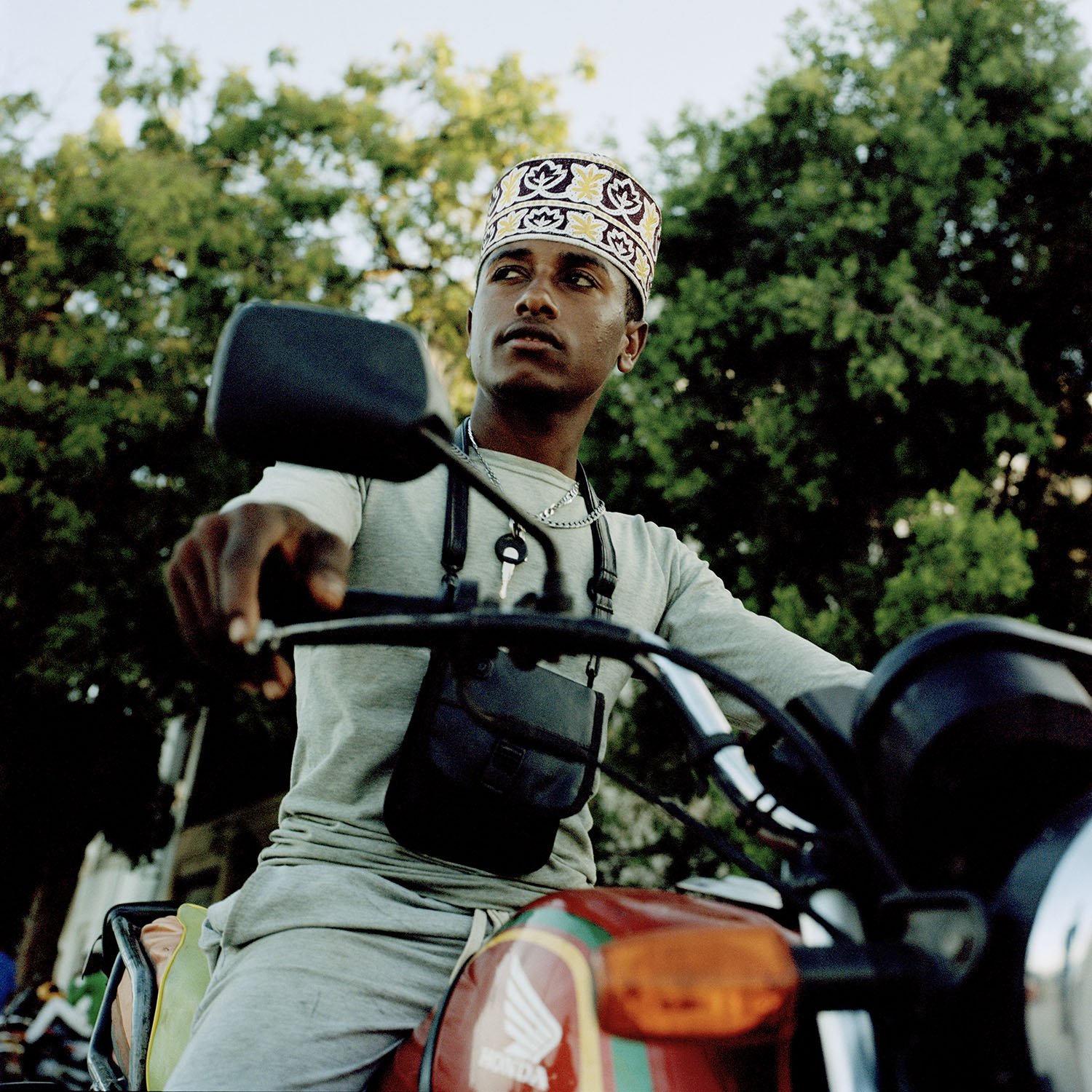
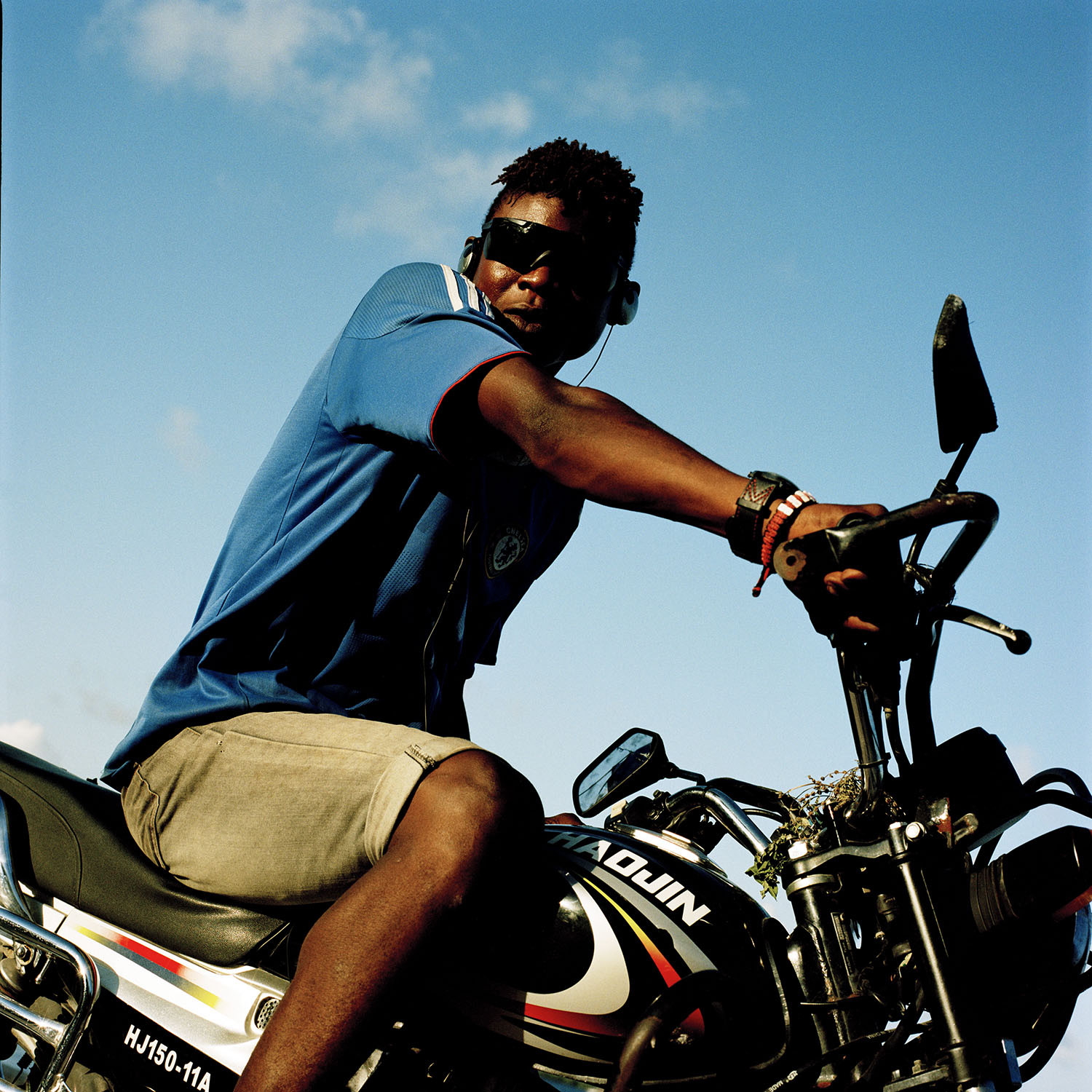
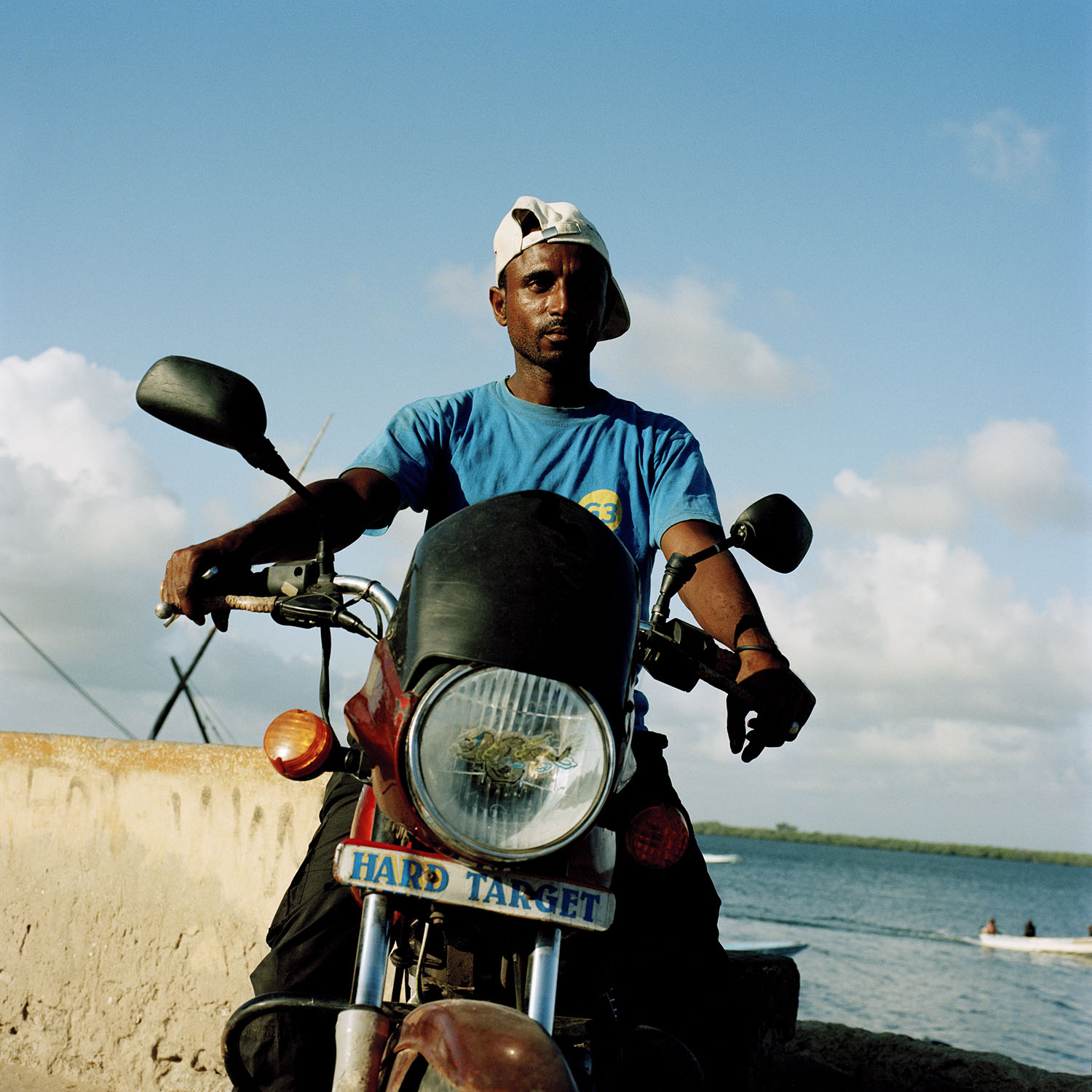
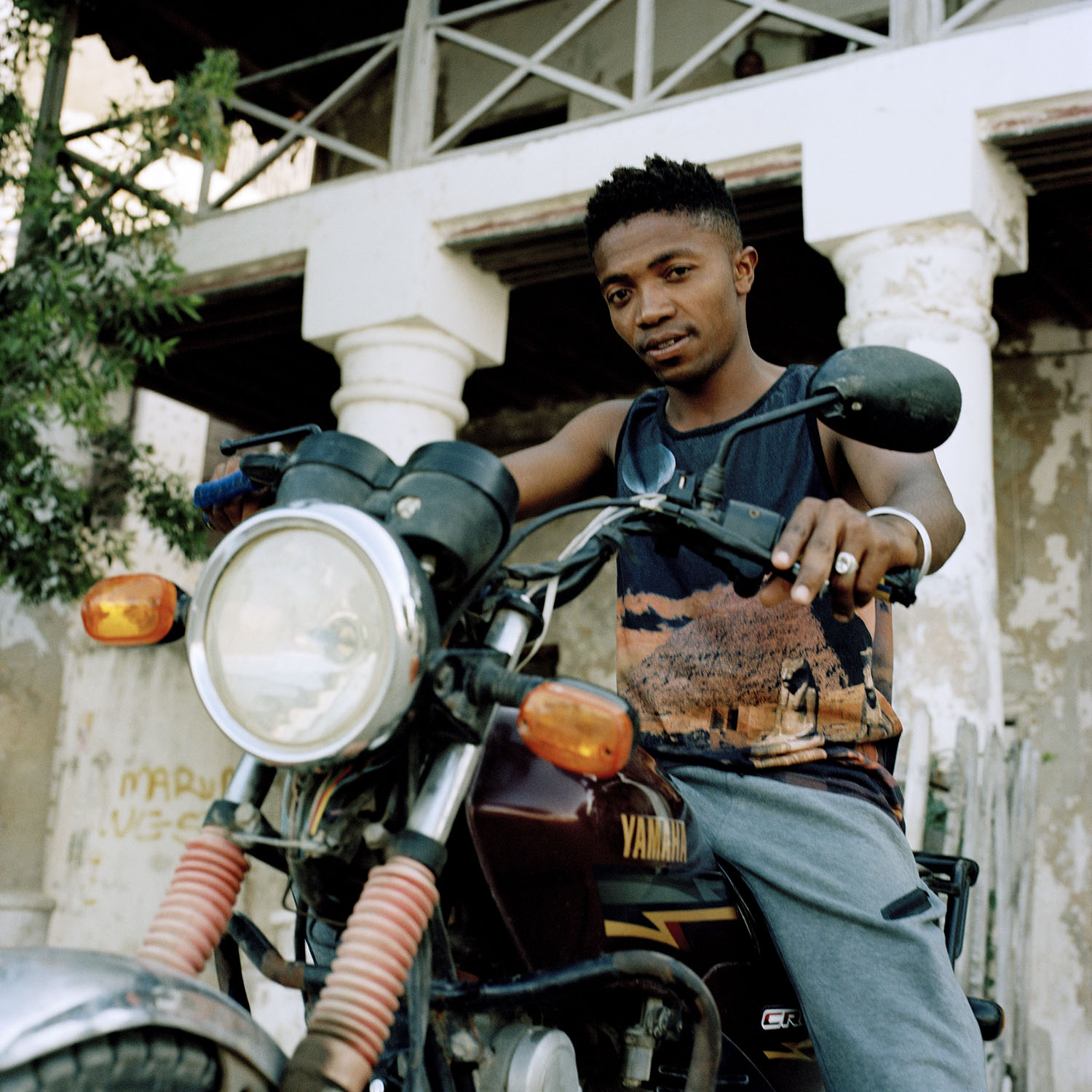
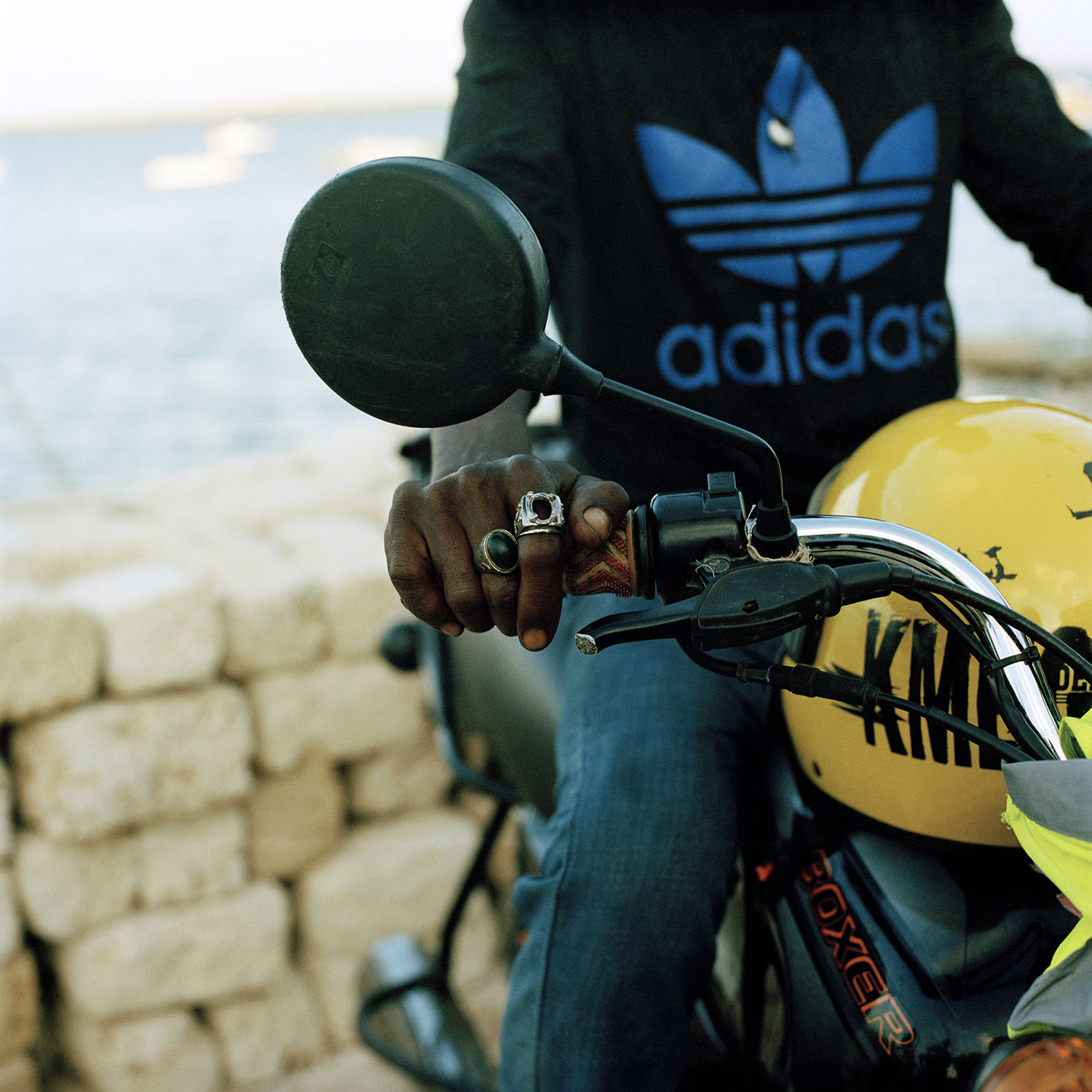
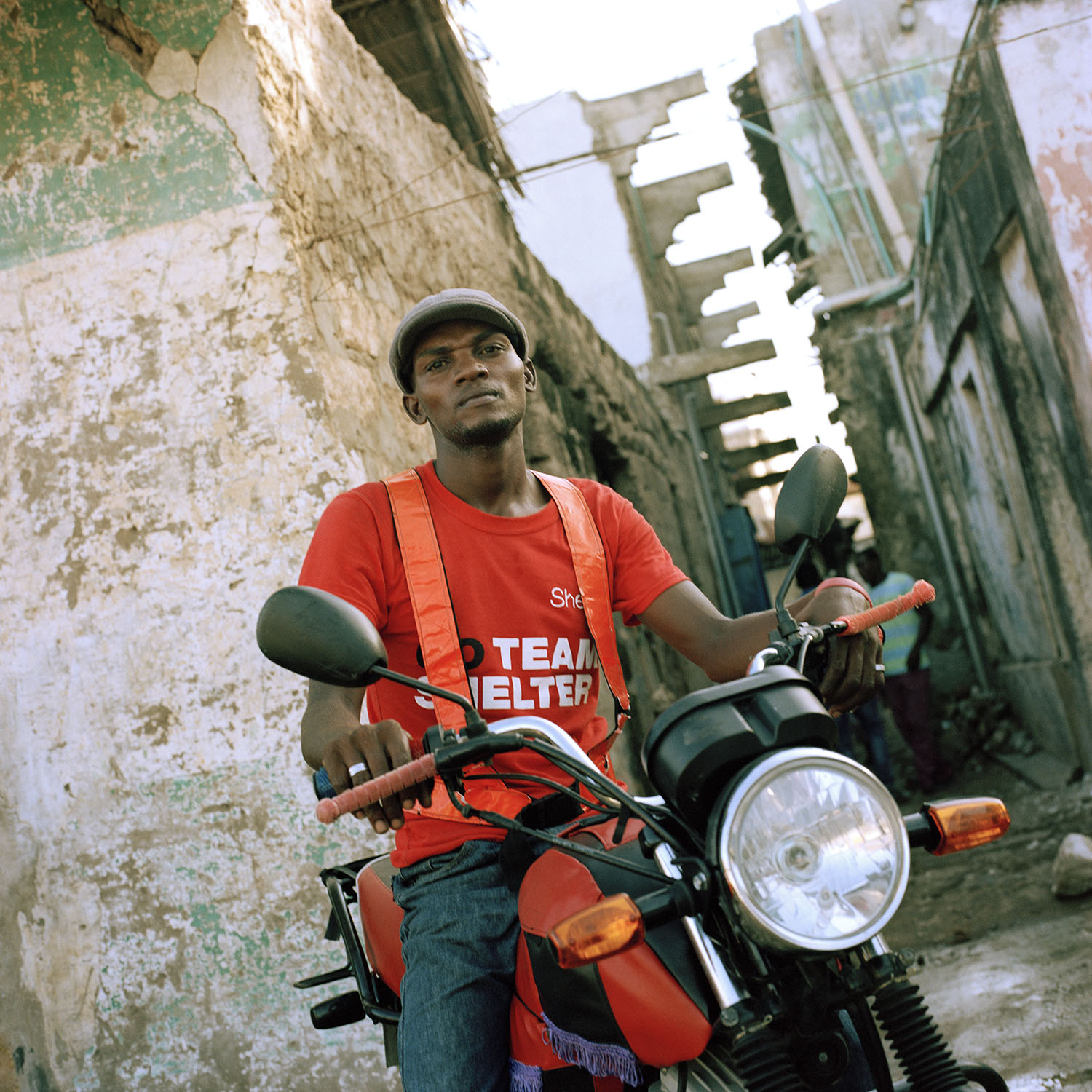
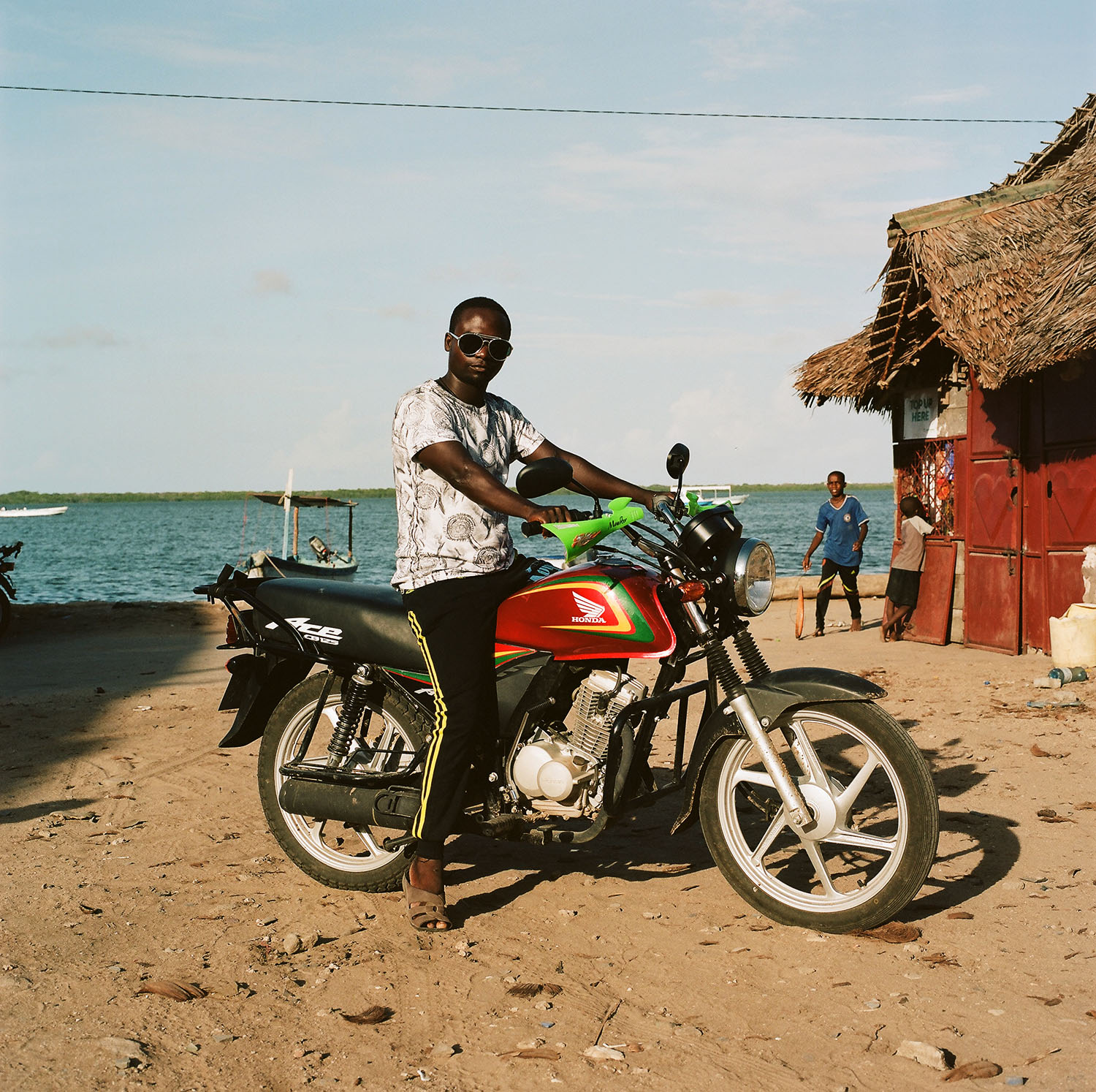
Piki-Piki Paradise (2019, Lagos Biennial 2nd Edition)
An on-going series of portraits that focuses on the biker community of Lamu Old Town (Lamu Island, Kenya).
The piki-piki ( a local term for boda-boda, which are motorcycle taxis commonly found in East Africa) business in Lamu Old Town is a recent growing trend amongst the male youth that is symptomatic of western influence and urban modernisation. The new generation’s entrepreneurial spirit and eagerness to achieve financial independence, along with a strong sense of comradery, are probably identifiable as the main drivers for such a phenomenon with the motorbike contributing to the empowering bad boy archetype. The piki-piki community oozes a kind of cool bravado and it is almost tangible the pride and enthusiasm bikers feel in the roughness and fierce acceleration of their motorbikes which also seems to reassert their masculinity and rebelliousness in their social interactions.
Their growing prominence, however, doesn’t meet the homogeneous acceptance of the local population and, in particular, from those who are attached and ever more interested in preserving the traditional Swahili way of life as it poses a threat to the island’s cultural heritage. The town, in fact, is designed in such a way that allows movement through its narrow alleys either by foot or by an old mode of transport that has stood the test of time - donkeys. Vehicles are therefore altogether banned by the government in order to preserve Lamu Old Town’s unique age-old culture and heritage and could as a consequence, lead to the delisting of the town as a UNESCO heritage site.
Lamu is considered a quiet island paradise where time seems to have stood still for centuries and it is now experiencing the spirited and disruptive energy of the piki-piki.
With the world changing at such a rapid pace, how does the introduction of modernisation impact one’s sense of belonging and understanding of heritage and, in an island paradise like Lamu, can one reconcile tradition and modernity?
An on-going series of portraits that focuses on the biker community of Lamu Old Town (Lamu Island, Kenya).
The piki-piki ( a local term for boda-boda, which are motorcycle taxis commonly found in East Africa) business in Lamu Old Town is a recent growing trend amongst the male youth that is symptomatic of western influence and urban modernisation. The new generation’s entrepreneurial spirit and eagerness to achieve financial independence, along with a strong sense of comradery, are probably identifiable as the main drivers for such a phenomenon with the motorbike contributing to the empowering bad boy archetype. The piki-piki community oozes a kind of cool bravado and it is almost tangible the pride and enthusiasm bikers feel in the roughness and fierce acceleration of their motorbikes which also seems to reassert their masculinity and rebelliousness in their social interactions.
Their growing prominence, however, doesn’t meet the homogeneous acceptance of the local population and, in particular, from those who are attached and ever more interested in preserving the traditional Swahili way of life as it poses a threat to the island’s cultural heritage. The town, in fact, is designed in such a way that allows movement through its narrow alleys either by foot or by an old mode of transport that has stood the test of time - donkeys. Vehicles are therefore altogether banned by the government in order to preserve Lamu Old Town’s unique age-old culture and heritage and could as a consequence, lead to the delisting of the town as a UNESCO heritage site.
Lamu is considered a quiet island paradise where time seems to have stood still for centuries and it is now experiencing the spirited and disruptive energy of the piki-piki.
With the world changing at such a rapid pace, how does the introduction of modernisation impact one’s sense of belonging and understanding of heritage and, in an island paradise like Lamu, can one reconcile tradition and modernity?